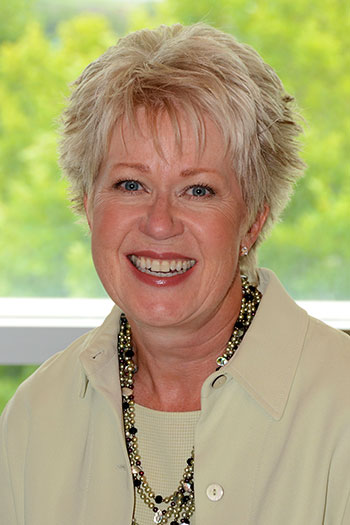Program may help those reluctant to engage in advance care planning
A UBC study investigating how cancer patients might use an advance care planning software created for seniors has shown promising results and led to improvements in the program.

Carole Robinson
Carole Robinson, a professor in the School of Nursing at UBC’s Okanagan campus, and Martha Cresswell, a student in the Master of Science nursing program, asked a group of oncology patients to use a web-based interactive program called PREPARE that is designed to engage people in advance care planning (ACP) conversations.
“Despite decades of work to embed advance care planning into health care systems, many patients who access cancer care do not understand their role in making choices and are simply unprepared to begin ACP conversations,” says Robinson. “This places them at risk of unwanted care, particularly during a health crisis.”
Cancer patients tend to have a ‘lack of engagement’ when it comes to advance care planning, says Robinson. This often leads to family members making decisions they are not ready for, conflict in a family, and negative healthcare consequences. While initially designed for seniors, Cresswell says PREPARE seemed promising for oncology patients and she gave it a test run.
“We wanted to explore the acceptability, applicability, and understandability of the ACP resource,” explains Creswell. “It had not been tested for use within oncology, but had previously been shown to positively influence the readiness of community-dwelling seniors to engage in ACP.”
Patients with a variety of cancers including breast, lymphoma, gastrointestinal and ovarian were part of the study group. Five topics were addressed: choose a medical decision-maker, decide what matters most in life, choose flexibility for your decision-maker, tell others about your medical wishes, and ask doctors the right questions.
Cresswell says participants engaged in personal reflection as they worked their way through the website, actively contemplating and debating the ACP options presented by PREPARE and comparing those options to their own life experiences. They also evaluated the resource for use as a cancer patient.
“While it was the first time PREPARE was used with oncology patients, it took them through some critical steps,” says Robinson. “And it began an on-going conversation about the potential for end-of-life preferences for care.”
In fact, the study shows a few participants had difficulty with the life-limiting language found within the website. Cresswell explains that end-of-life language can trigger worries and fears by challenging the patient’s goals for treatment and their focus on a cure. And Robinson agrees these findings can partially explain the barriers to ACP that appear unique to cancer patients who are receiving treatment.
“It’s all about encouraging the beginning of a conversation with your family so you can have a say in your care should something happen and you can no longer speak for yourself,” she adds. “We suggest patients start the conversation when they are well and to perhaps think of it as a gift to the family that may prevent future conflict or challenges.”
Robinson notes feedback from the participants led to a change in some of the terminology used in the program. Her next step may be a follow-up study to determine whether the language causes distress or disengagement from ACP.
This study, partially funded by a grant from the BC Cancer Foundation, was recently published in the journal Supportive Care in Cancer.
About UBC's Okanagan campus
UBC’s Okanagan campus is an innovative hub for research and learning in the heart of British Columbia’s stunning Okanagan Valley. Ranked among the top 20 public universities in the world, UBC is home to bold thinking and discoveries that make a difference. Established in 2005, the Okanagan campus combines a globally recognized UBC education with a tight-knit and entrepreneurial community that welcomes students and faculty from around the world. For more visit ok.ubc.ca.
 Best surfers in Canada
Best surfers in Canada Guilty in fatal shooting
Guilty in fatal shooting ICBC warns teens for prom
ICBC warns teens for prom Healing lodges underfunded
Healing lodges underfunded Liberals turn to influencers
Liberals turn to influencers Senators reject field trip
Senators reject field trip Dies after self-immolation
Dies after self-immolation Israeli strike played down
Israeli strike played down Full Trump jury seated
Full Trump jury seated Lululemon cuts 100 jobs
Lululemon cuts 100 jobs Bitcoin's 'halving' arrives
Bitcoin's 'halving' arrives Lawsuit over missing nuts
Lawsuit over missing nuts Rockets season ends in PG
Rockets season ends in PG Warriors bounced in opener
Warriors bounced in opener Warriors ready for Round 2
Warriors ready for Round 2 Pulp Fiction turns 30
Pulp Fiction turns 30 Chris Pratt injured in movie
Chris Pratt injured in movie My name is not Elaine
My name is not Elaine



